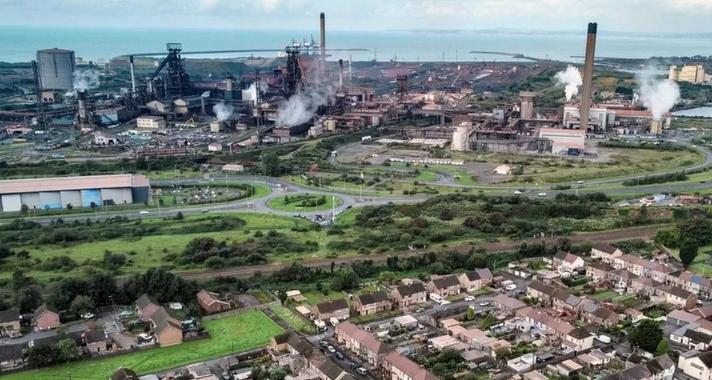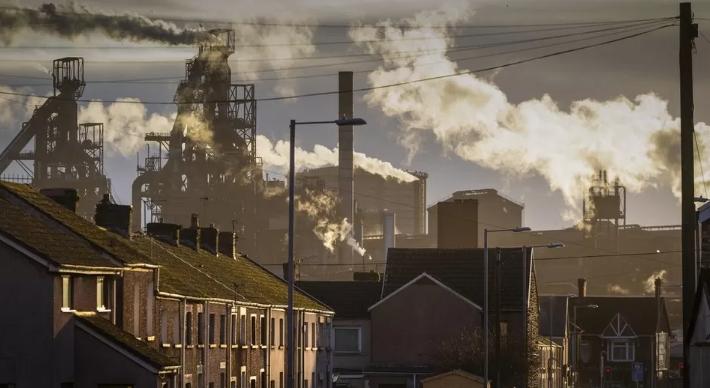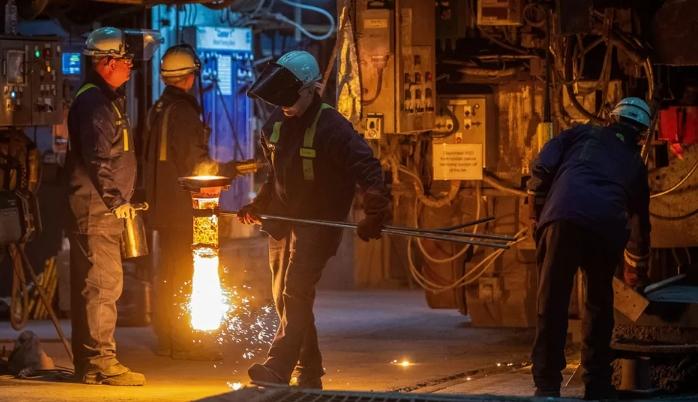Port Talbot’s prominent steelworks is set to receive a generous package of up to £500m from the UK government. The objective? To encourage the production of greener steel.
However, there’s a catch – thousands may find themselves out of work. Tata Steel’s additional £700m is directed towards emission cuts. But such eco-friendly steps might lead to 3,000 UK-wide job losses.
Historical Context: Port Talbot’s Evolution
For over a decade, Port Talbot’s steelworks, owned by Tata Steel since April 2007, has been an economic stalwart in south Wales. The plant, operating non-stop with its two blast furnaces, contributes to products from tin cans to vehicles. Yet, it’s also among the UK’s major pollution sources. A series of tumultuous events, from potential sales, merger prospects, and restructuring plans to a global pandemic, have consistently threatened the plant’s existence and its workforce’s stability.

Technological Upgrade or a Layoff Crisis?
In a drive to reduce pollution, the UK government is backing the installation of new electric arc furnaces. The UK government claims this change could reduce business and industry carbon emissions by 7%. Still, the transition from coal-powered furnaces may cut carbon emissions but at the price of thousands of jobs. Kemi Badenoch, the UK’s business and trade secretary, presents a differing view:
“We are saving jobs which would have been lost.”
However, these potential layoffs have stirred anxieties. Rishi Sunak, indicating the government’s foresight, mentions a £100m transition plan dedicated to retraining affected employees.
Navigating the Green Steel Debate

The switch to electric arc furnace technology has its supporters and critics. Natarajan Chandrasekaran, Tata group chairman, praises the deal as a “defining moment for the future of the steel industry”. Meanwhile, Stephen Kinnock, Labour MP for Aberavon, and David Rees, MS for Aberavon, express concerns about job losses and the potential lack of diversity in steel quality production.
Jonathan Reynolds, shadow business and trade secretary, criticizes the deal, highlighting the redundancy of workers despite the hefty investment. Welsh officials and trade union representatives further underscore the community’s concerns and the need for more transparent consultation.
Looking Forward: An Industry at a Crossroad
With Tata Steel’s turbulent history in the UK, especially at the Port Talbot site, the £500m aid package seems like a lifeline. Yet, the significant shift to green steel production, while environmentally commendable, opens a pandora’s box of challenges related to job security, sustainable profitability, and the long-term viability of the steel industry in the UK. As Unite general secretary Sharon Graham puts it, the plans might be “short-sighted” and may lack ambition for the industry’s future.
